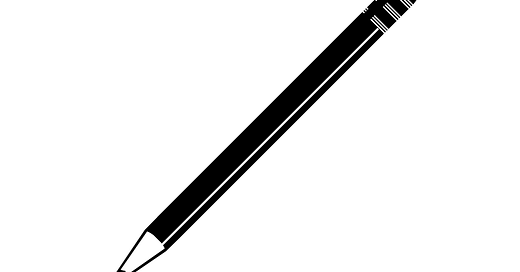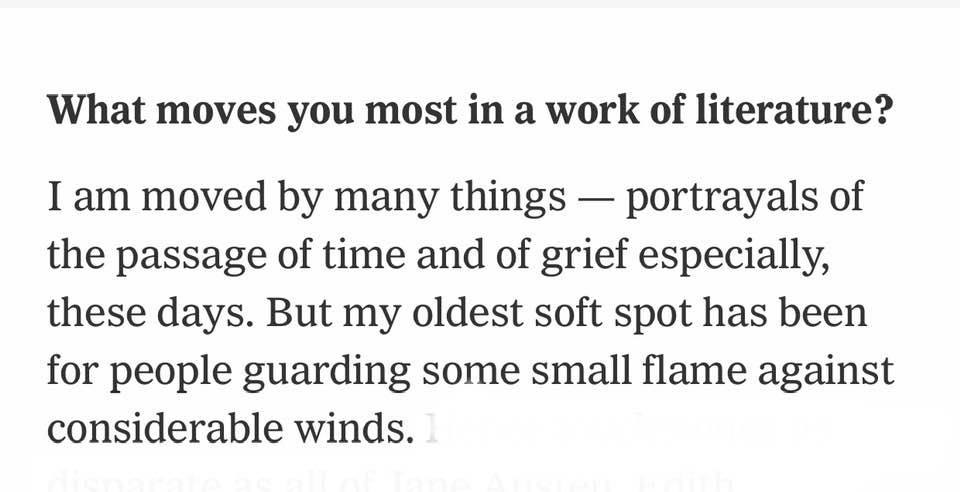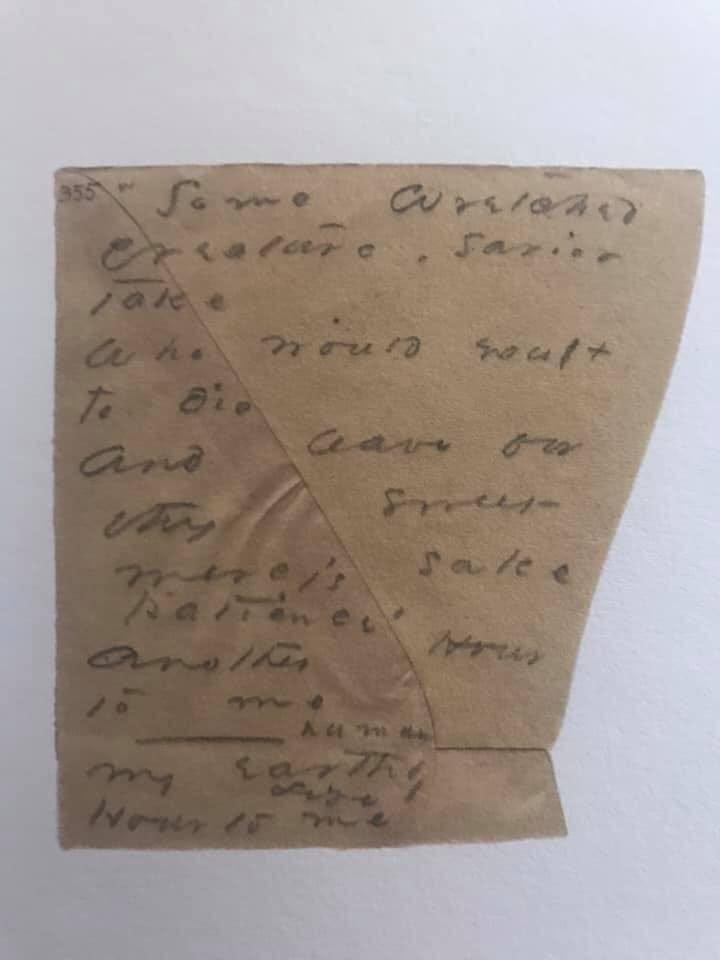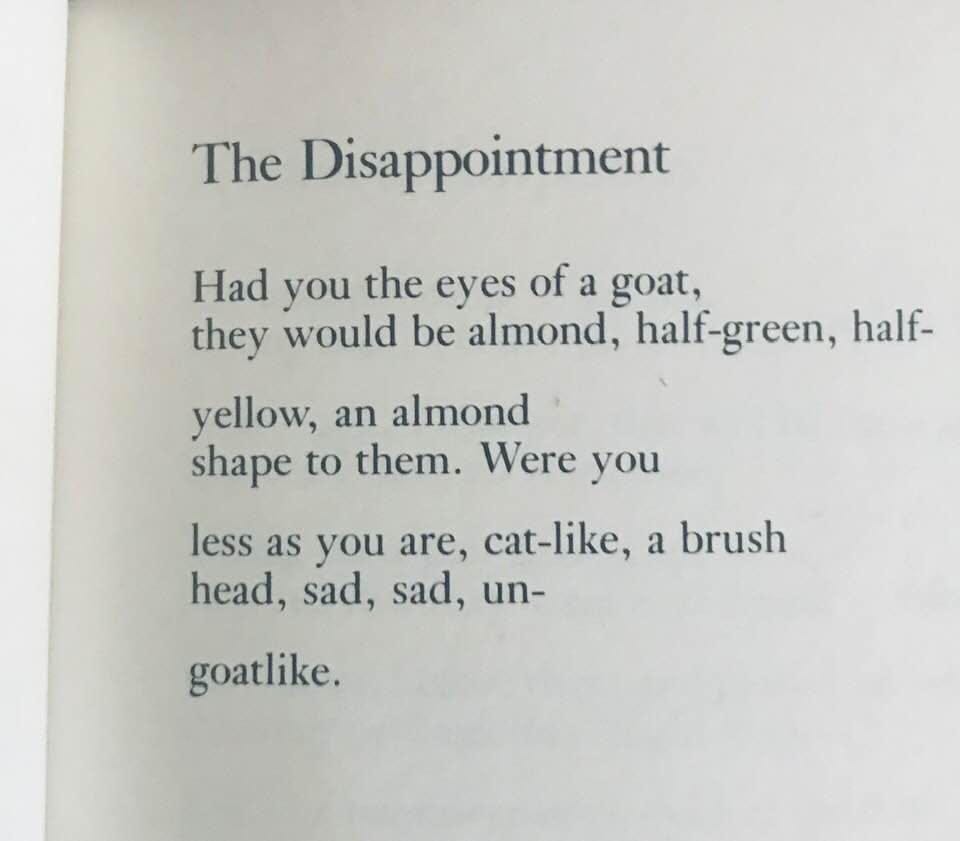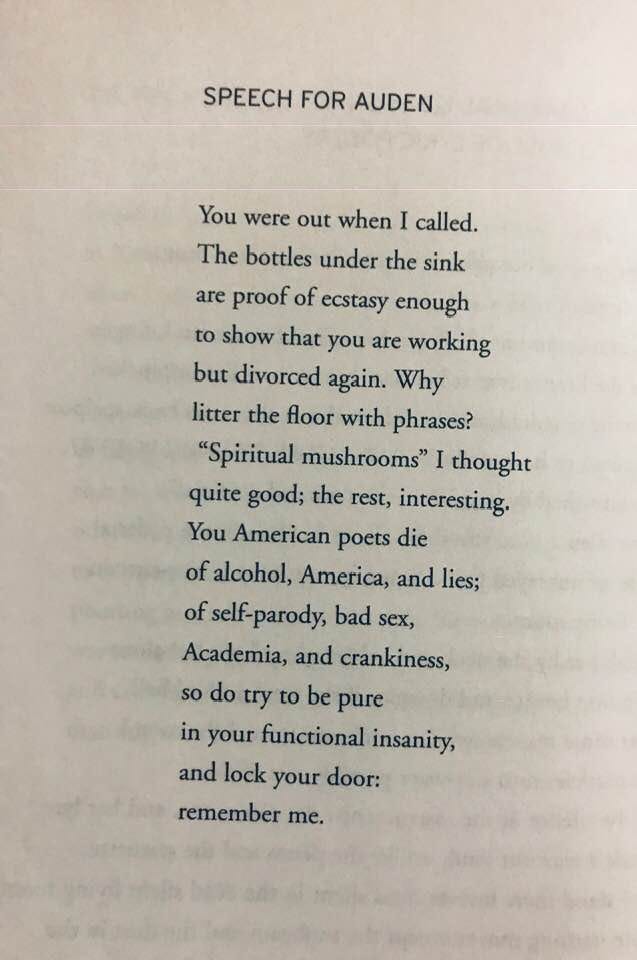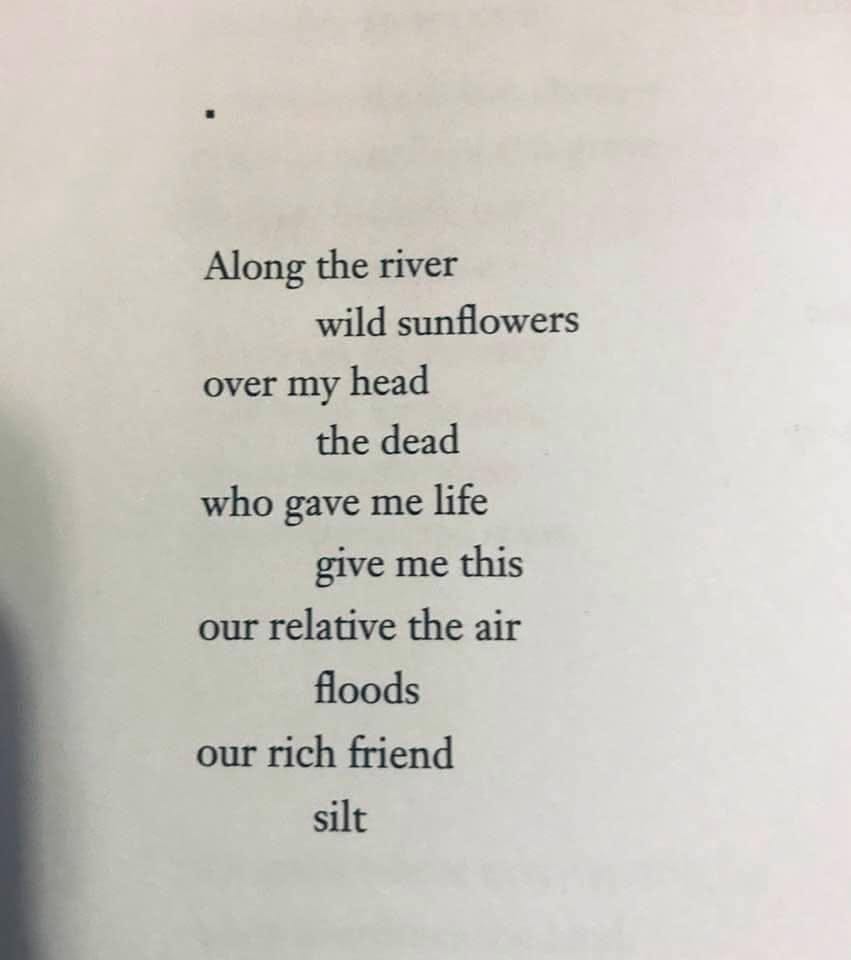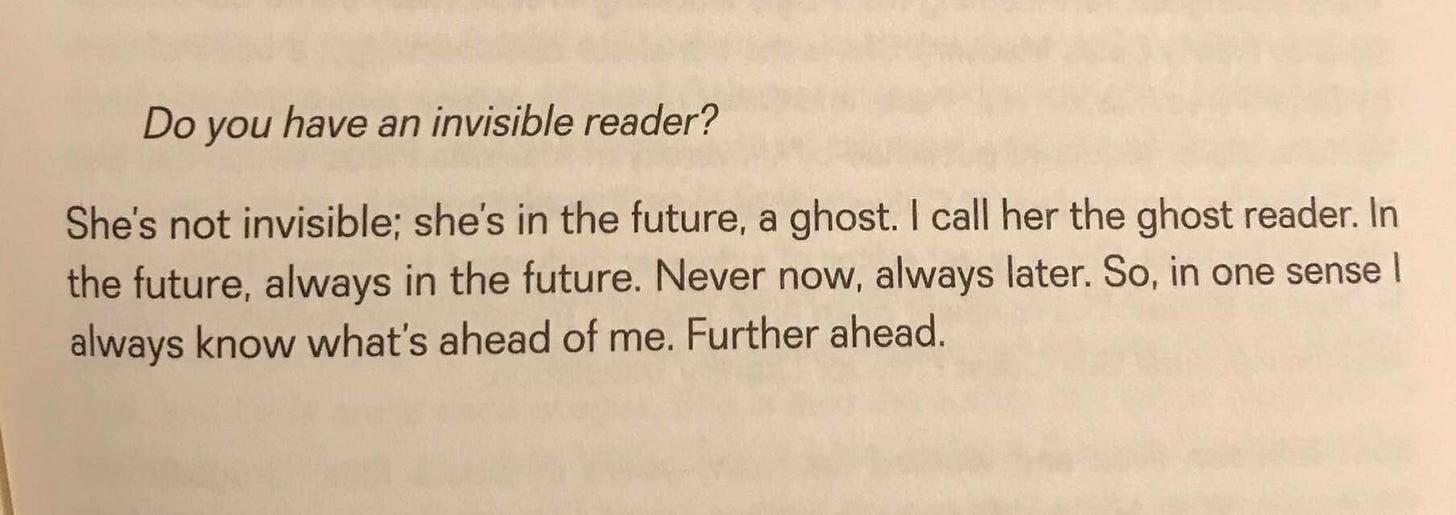"our relative the air"
Jen, Dickinson, Milosz, Creeley, Dugan, Ammons, O'Hara, Niedecker, Berenguer
Gish Jen:
Emily Dickinson:
Some Wretched / creature / savior / take / Who would Exult / to die / And leave for / thy sweet / mercy’s sake / patience / Another Hour / to me / My human / Earthly / Life / Hour to me
Czeslaw Milosz:
Poetry imposes certain restraints. Nevertheless, there is always the feeling that you didn’t unveil yourself enough. A book is finished and appears and I feel, Well, next time I will unveil myself. And when the next book appears, I have the same feeling. And then your life ends, and that’s it.
Robert Creeley:
Alan Dugan:
A.R. Ammons:
The invention of a poem frequently is how to find a way to resolve the complications that you’ve gotten yourself into. I have a little poem about this that says that the poem begins as life does, takes on complications as novels do, and at some point stops. Something has to be invented before you can work your way out of it, and that’s what happens at the very center of a poem.
Frank O’Hara:
Lorine Niedecker to Louis Zukofsky, Dec. 24, 1962:
I wonder if we dare to close the gap someday—What we feel, see, inside us and outside is melted together absolutely. Even I with lines into each other as ‘Along the river’—your contrapuntals—
Amanda Berenguer:
About Sean Singer
Sean Singer Editorial Services
Subscribe to The Sharpener
The paid-subscriber version of The Sharpener includes craft pieces on literary fixes, deep dives into poets on their birthdays and memorials, information about professional literacy and labor issues for writers, and detailed citations and analyses of the poems I’m reading.

